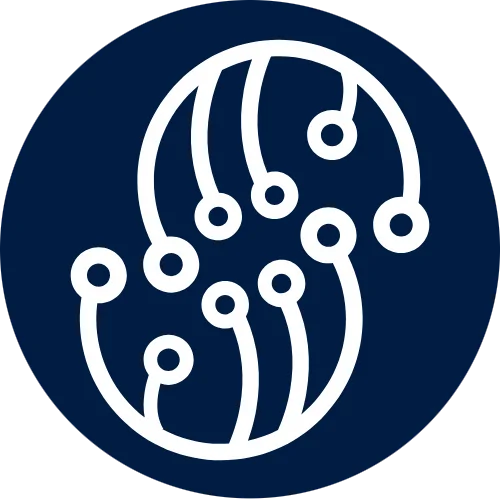As a global leader in SaaS, Salesforce’s latest AI solution, Agentforce, is seen as a major innovation in enhancing enterprise efficiency. This article focuses on explaining the concept of AI Agents, Salesforce’s Agentforce features, performance, efficiency, and commercial return, in order to understand its technological advantages and market potential.

1. Concept and Basic Components of AI Agents
(1) What is an AI Agent?
An AI Agent (Artificial Intelligence Agent) is a new form of AI development. Unlike traditional Chatbots and AI Assistants, AI Agents can not only provide answers but also autonomously make decisions and execute tasks, acting like a “Digital Employee.”
According to OpenAI’s AGI (Artificial General Intelligence) roadmap, AI technology can be divided into five stages:
- L1: Chatbot → Capable of natural language interaction, such as ChatGPT.
- L2: AI Assistant → Possesses some reasoning and problem-solving ability, such as Microsoft Copilot.
- L3: AI Agent → Can autonomously execute tasks, such as Salesforce’s Agentforce.
- L4: AI Automation System → Can make complex decisions independently, like Level 4 autonomous driving.
- L5: Fully General AI (AGI) → A system with human-level intelligence that can work entirely on its own.
AI Agents are currently at the L3 stage, meaning they go beyond simple chatbot interactions by autonomously breaking down tasks and executing multiple steps to achieve a goal. For instance, an AI Agent can analyze customer inquiries, process data, generate reports, and even execute business decisions without human intervention.
(2) Basic Components of an AI Agent
To function effectively, an AI Agent requires three core components:
| Component | Function | Supporting Technology |
|---|---|---|
| Analysis & Decision Module (Brain) | Reasoning, problem-solving, and decision-making | AI models (LLMs like GPT-4, Claude) |
| Perception Module (Senses) | Processing text, images, and voice inputs | Multimodal AI, sensors, NLP |
| Execution Module (Actions) | Performing tasks such as report generation, automation, and system interactions | API calls, RPA (Robotic Process Automation), UI automation |
(3) Differences Between AI Agent and Other AI Systems
| Type | Chatbot | AI Assistant | AI Agent |
|---|---|---|---|
| Function | Provides answers and suggestions | Assists in completing tasks | Autonomously makes decisions and executes tasks |
| Examples | ChatGPT, Siri | Microsoft Copilot | Salesforce Agentforce |
| Key Feature | Responds to queries | Supports users with guidance | Independently executes business operations |
| Complexity | Low | Medium | High |
AI Agents are more advanced than chatbots because they have a degree of autonomy, allowing them to decompose goals into actionable steps and carry out tasks rather than just responding to user prompts.
2. Salesforce Agentforce: AI Agent Applications in SaaS
Salesforce’s Agentforce is an enterprise-grade AI Agent solution that integrates with its CRM platform to help businesses automate sales, customer service, marketing, and data analysis.
Core Features of Agentforce
- Autonomous Task Execution
Agentforce can be configured to automatically handle business workflows, such as expense approvals, customer complaints, or scheduling sales meetings. - No-Code Customization
Users can set up AI Agents with natural language descriptions, eliminating the need for coding.
Example:- “When a customer inquires about a return, check the order status and provide the return link.”
- “When a sales goal is achieved, automatically send a bonus approval request to finance.”
- Deep Integration with the Salesforce Ecosystem
Agentforce seamlessly integrates with Salesforce CRM and is also compatible with third-party platforms like SAP and Oracle, ensuring smooth data sharing across enterprise systems.

Reference Link: https://appexchange.salesforce.com/learn/make-the-most-of-agentforce-with-partners
3. AI Agent’s Impact on Business Efficiency and Productivity
(1) Customer Service Automation: Service Agent
Currently, Agentforce has the fastest implementation in the customer service field (Service Agent) and is primarily used for:
- Automatically handling customer inquiries (e.g., returns, account issues)
- Reducing human customer service intervention (about 83% of inquiries handled independently by AI)
- Decreasing response time (reducing human involvement by 50%)
With a pricing model of $2 per conversation, compared to traditional human customer service at $2.7–$5.6 per session, cost savings can reach up to 45%.
(2) Sales Automation: Sales Agent
- Automated customer segmentation (predicting potential customers based on behavioral data)
- Intelligent sales forecasting (analyzing historical data to predict sales trends)
- Contract and follow-up management (automatically sending emails and scheduling meetings)
Through AI-driven predictions and automation, Agentforce helps sales teams reduce data processing and manual operations, increasing sales conversion rates by 15%–30%.
(3) Marketing Automation: Marketing Agent
- Intelligent ad placement (optimizing marketing campaigns based on user profiles)
- AI-generated content (automatically writing emails and social media posts)
- Customer behavior analysis (predicting user preferences to refine marketing strategies)
By leveraging AI-driven precision marketing, businesses can reduce ineffective advertising costs and increase ROI (Return on Investment).
4. Agentforce’s Return on Investment and Market Potential
(1) Market Value of AI Agents
In the U.S. market alone, there are currently 3 million customer service roles, handling 39 billion customer inquiries annually. If Agentforce achieves a 20%-50% penetration rate, its potential market size could reach $2 billion – $39 billion, surpassing Salesforce’s current $9 billion Service Cloud revenue.
As AI Agents expand into sales, finance, education, and healthcare, the market potential could scale to hundreds of billions or even trillions of dollars.
(2) Projected Revenue Growth for Salesforce
- If Agentforce reaches 5%-10% adoption in customer service over the next two years, it could drive 10%-20% additional revenue.
- With broader industry adoption, Agentforce could contribute 3%-6% growth to Salesforce’s overall revenue.
While AI Agents are still in their early stages, their long-term potential is enormous, especially in automation, cost reduction, and improving customer experience.
5. Conclusion: Will Agentforce Reshape the SaaS Ecosystem?
- Technology Readiness:
- AI Agents are still evolving. Agentforce requires predefined task rules and is not yet fully autonomous.
- However, its no-code and automation capabilities enable enterprises to quickly deploy AI solutions, improving operational efficiency.
- Enterprise Efficiency Gains:
- Customer Service: Reduces 50% of human intervention and cuts costs by 45%.
- Sales & Marketing: Reduces manual work, increases conversion rates and ROI.
- Market Potential:
- Customer service market alone: $2 billion – $39 billion, with broader AI Agent adoption potentially scaling to trillions.
- Short-Term Impact:
- Within two years, Agentforce could increase Salesforce’s revenue by 10%-20%, but it is not yet a complete game-changer for SaaS.
Final Verdict
Agentforce represents Salesforce’s strategic move into AI-driven enterprise automation, signaling a shift from tool-based AI (e.g., Chatbots) to goal-driven AI (AI Agents).
While Agentforce is still in its early stages, its potential market size is vast. As AI Agent technology matures, Salesforce could become a leading platform for enterprise automation, fundamentally transforming the SaaS industry in the long run.

